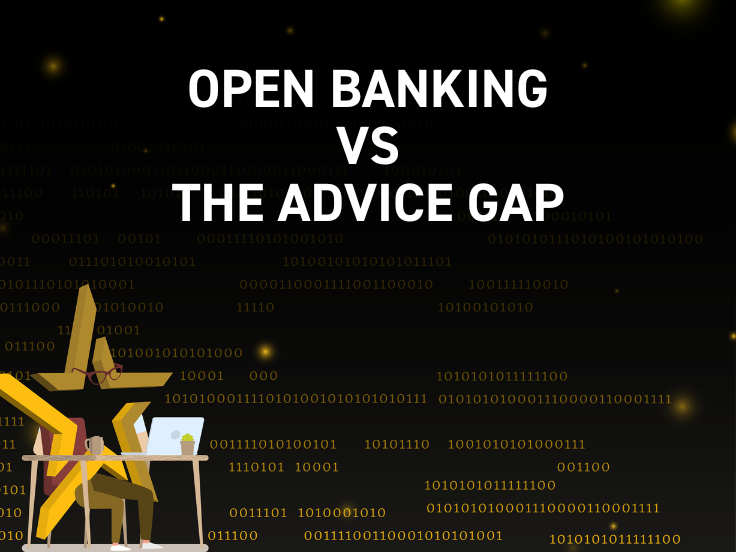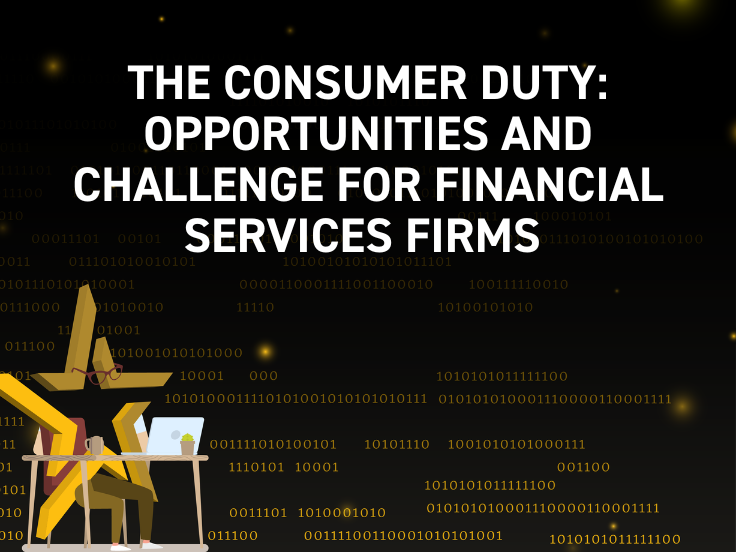
Home
/
Blog
/
Financial inclusion
 09:56 05 Aug 2021
09:56 05 Aug 2021
Is there a “concrete wall” for women in Latin American Fintech?
 09:56 05 Aug 2021
09:56 05 Aug 2021 
 We initiated a project to explore the barriers women face to become fintech entrepreneurs in Latin America. Microfinance and then fintech start-ups have focused and helped women “at the base of the pyramid” (by reducing frictions and increasing financial inclusion), but what is the situation of others and particularly towards the “top of the pyramid”?
We believe this is an important research question because, as a growing sector within the region and other parts of the world, the fintech industry should offer gender-neutral opportunities for development and self-fulfilment. Cristina Junqueira, Co-Founder of Nubank in Brazil in 2013, the most successful fintech start-up in the region to date, suggests these opportunities are real and can be handsomely rewarded. At the same time, however, anecdotal evidence suggests there are important gender disparities in finance and engineering. Does this mean that the case of Junqueira is a fluke? We therefore asked a group of men and women who were either employed in or had established a fintech start-up across the region to help us identify the barriers women have to wrestle.
An initial challenge was to establish industry boundaries. There is no consistent use of the term fintech. Some root the process to the 19th century while the adoption of electromechanical devices and computer technology came about throughout the 20th century. By the mid-80s, we see the appearance of its acronym (FinTech, Fintech or fintech) encompassing the business and financial impact of technological change internationally. Yet, it was not until 2012 when the concept takes off and is associated with newcomers using applications of information and communication technologies to contest retail financial services.
Since then, the creation of fintech start-ups has been particularly active in Brazil, Mexico, Colombia, Argentina, and Chile. By 2018, there were more than 1,000 fintech companies in Latin America and the Caribbean where Nubank, Mercado Pago (the payments subsidiary of Mercado Libre), Ualá, C6 Bank, and Prisma stand out as the largest and most successful by any measure. Meanwhile, according to Statista.com, in 2020, $1,977 million dollars of venture capital were invested in Brazil, $567 in Mexico, $210 in Uruguay, and $187 in Colombia.
We initiated a project to explore the barriers women face to become fintech entrepreneurs in Latin America. Microfinance and then fintech start-ups have focused and helped women “at the base of the pyramid” (by reducing frictions and increasing financial inclusion), but what is the situation of others and particularly towards the “top of the pyramid”?
We believe this is an important research question because, as a growing sector within the region and other parts of the world, the fintech industry should offer gender-neutral opportunities for development and self-fulfilment. Cristina Junqueira, Co-Founder of Nubank in Brazil in 2013, the most successful fintech start-up in the region to date, suggests these opportunities are real and can be handsomely rewarded. At the same time, however, anecdotal evidence suggests there are important gender disparities in finance and engineering. Does this mean that the case of Junqueira is a fluke? We therefore asked a group of men and women who were either employed in or had established a fintech start-up across the region to help us identify the barriers women have to wrestle.
An initial challenge was to establish industry boundaries. There is no consistent use of the term fintech. Some root the process to the 19th century while the adoption of electromechanical devices and computer technology came about throughout the 20th century. By the mid-80s, we see the appearance of its acronym (FinTech, Fintech or fintech) encompassing the business and financial impact of technological change internationally. Yet, it was not until 2012 when the concept takes off and is associated with newcomers using applications of information and communication technologies to contest retail financial services.
Since then, the creation of fintech start-ups has been particularly active in Brazil, Mexico, Colombia, Argentina, and Chile. By 2018, there were more than 1,000 fintech companies in Latin America and the Caribbean where Nubank, Mercado Pago (the payments subsidiary of Mercado Libre), Ualá, C6 Bank, and Prisma stand out as the largest and most successful by any measure. Meanwhile, according to Statista.com, in 2020, $1,977 million dollars of venture capital were invested in Brazil, $567 in Mexico, $210 in Uruguay, and $187 in Colombia.

 There is evidence by IDB et al. (2018) and FinteChile& EY (2021) to suggest that in Latin America women represent 30% of the workforce in fintech companies while only 1 in 10 fintech companies have achieved gender parity. Further, 80% of all fintechs have at least one woman on their payroll while in Colombia and Argentina, 16% and 12% of the fintech start-ups, respectively, have at least 50% of women on their payroll. Likewise, 20% of start-ups included women in their founder team in Chile (35% for all the region). Colombia, Mexico, Peru, and Uruguay were the countries with the highest proportion of fintech enterprises with at least one woman on the founding team. Moreover, women founders tend to have more inclusive and diverse teams and seek financial inclusion.
The gender gap, however, widened when considering teams that included women establishing a start-up as these received 15% less funding than men-only teams, while 45% of women-only start-ups did not receive external financing at all. These figures stand out when compared with the performance of fintech start-ups in the rest of the world, where enterprises with at least one woman as founder obtained results that were 63% more positive than those established by male-only teams.
With the previous evidence in mind, we asked a group of men and women who were either employed or had established a fintech start-up across the region to help us identify the barriers women have to contend to become founders. Our initial query evolved around the importance of communities and external networks for the success of start-up founders. On the one hand, male interviewees articulated the importance of having both formal and informal communities prior to and during the early stages of the start-up. They argued that making use of their community was key to sharing resources, information and gaining critical support. On the other hand, female interviewees often saw no value in forming a community prior to start-up. They would engage with other women only after having been active in fintech events. Reasons for this were not altogether clear and something we plan to investigate further. However, some did mention giving priority to family commitments for their use of spare time.
A notable result was that most male respondents in our sample saw no significant barriers or hurdles in the way for women to enter fintech either as founders or employees. To the contrary, female interviewees were quite articulate in their description of a “glass wall”, “maze” or “labyrinth” in the way for them to access and fill spaces which have been typically dominated by men. For instance, even though there are no formal barriers for women to pursue a career in economics, finance, technology or engineering, few actually choose this path. Then recruitment advisors often find it difficult to appoint women to senior positions as they are seldom given opportunities to develop and demonstrate abilities to overcome challenges early on.
It is also the case that throughout the 20th century in Latin America, self-employment has been move comment amongst women in lower income strata than the educated (see the work of Escobar Andrae). This trend seems to remain the case as a 2016 survey in OECD economies, reported that one in ten employed women was self- employed, almost half the rate of self-employed men (18%). In other words, there are simply too few women owned businesses or public companies where women have reach the top positions.
There is evidence by IDB et al. (2018) and FinteChile& EY (2021) to suggest that in Latin America women represent 30% of the workforce in fintech companies while only 1 in 10 fintech companies have achieved gender parity. Further, 80% of all fintechs have at least one woman on their payroll while in Colombia and Argentina, 16% and 12% of the fintech start-ups, respectively, have at least 50% of women on their payroll. Likewise, 20% of start-ups included women in their founder team in Chile (35% for all the region). Colombia, Mexico, Peru, and Uruguay were the countries with the highest proportion of fintech enterprises with at least one woman on the founding team. Moreover, women founders tend to have more inclusive and diverse teams and seek financial inclusion.
The gender gap, however, widened when considering teams that included women establishing a start-up as these received 15% less funding than men-only teams, while 45% of women-only start-ups did not receive external financing at all. These figures stand out when compared with the performance of fintech start-ups in the rest of the world, where enterprises with at least one woman as founder obtained results that were 63% more positive than those established by male-only teams.
With the previous evidence in mind, we asked a group of men and women who were either employed or had established a fintech start-up across the region to help us identify the barriers women have to contend to become founders. Our initial query evolved around the importance of communities and external networks for the success of start-up founders. On the one hand, male interviewees articulated the importance of having both formal and informal communities prior to and during the early stages of the start-up. They argued that making use of their community was key to sharing resources, information and gaining critical support. On the other hand, female interviewees often saw no value in forming a community prior to start-up. They would engage with other women only after having been active in fintech events. Reasons for this were not altogether clear and something we plan to investigate further. However, some did mention giving priority to family commitments for their use of spare time.
A notable result was that most male respondents in our sample saw no significant barriers or hurdles in the way for women to enter fintech either as founders or employees. To the contrary, female interviewees were quite articulate in their description of a “glass wall”, “maze” or “labyrinth” in the way for them to access and fill spaces which have been typically dominated by men. For instance, even though there are no formal barriers for women to pursue a career in economics, finance, technology or engineering, few actually choose this path. Then recruitment advisors often find it difficult to appoint women to senior positions as they are seldom given opportunities to develop and demonstrate abilities to overcome challenges early on.
It is also the case that throughout the 20th century in Latin America, self-employment has been move comment amongst women in lower income strata than the educated (see the work of Escobar Andrae). This trend seems to remain the case as a 2016 survey in OECD economies, reported that one in ten employed women was self- employed, almost half the rate of self-employed men (18%). In other words, there are simply too few women owned businesses or public companies where women have reach the top positions.
 There is thus a vicious cycle. Few women pursue a career in economics, finance, technology or engineering. Few educated women become self-employed. And for those handful that do follow this path, a lack of opportunities prevents them developing a track record showing an ability to sort out challenges and expertise, thus closing many doors to senior positions or having the skills and track record to become fintech founders. In turn, this results in a very small pool of female directors that can signal positive opportunities for development to or actually mentor young people.
These results led us to believe that our future research should explore in greater depth the importance of “soft skills” such as networking and community building for the establishment of fintech start-ups. This will also entail looking at how training opportunities and women-focused support networks can help towards making fintech entrepreneurship more accessible and equitable. We also are to query the socio-economic norms and barriers which disincentivise middle class educated women to become self-employed.
Join us at our upcoming Campfire next 1st September, where we will be launching a local chapter in Brazil to support the development and growth of the country’s open financial system.
There is thus a vicious cycle. Few women pursue a career in economics, finance, technology or engineering. Few educated women become self-employed. And for those handful that do follow this path, a lack of opportunities prevents them developing a track record showing an ability to sort out challenges and expertise, thus closing many doors to senior positions or having the skills and track record to become fintech founders. In turn, this results in a very small pool of female directors that can signal positive opportunities for development to or actually mentor young people.
These results led us to believe that our future research should explore in greater depth the importance of “soft skills” such as networking and community building for the establishment of fintech start-ups. This will also entail looking at how training opportunities and women-focused support networks can help towards making fintech entrepreneurship more accessible and equitable. We also are to query the socio-economic norms and barriers which disincentivise middle class educated women to become self-employed.
Join us at our upcoming Campfire next 1st September, where we will be launching a local chapter in Brazil to support the development and growth of the country’s open financial system.
 [The authors of this articles are: Bernardo Bátiz-Lazo (Newcastle Business School, Northumbria University, UK), and
Ignacio González-Correa (Department of Economics, Universidad de Santiago, Chile)]
[The authors of this articles are: Bernardo Bátiz-Lazo (Newcastle Business School, Northumbria University, UK), and
Ignacio González-Correa (Department of Economics, Universidad de Santiago, Chile)]
Helen Child, Founder & CEO, Open Banking Excellence



 " alt="">
" alt="">

 " alt="">
" alt="">
 " alt="">
" alt="">
 " alt="">
" alt="">
 " alt="">
" alt="">
 " alt="">
" alt="">
 " alt="">
" alt="">
 " alt="">
" alt="">
 " alt="">
" alt="">